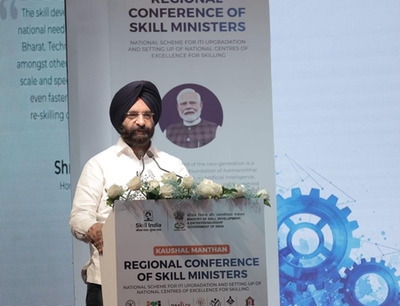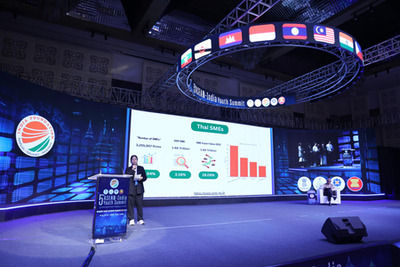Yogesh Tripathi, best known as the hilarious Daroga Happu Singh from Happu Ki Ultan Paltan and Bhabiji Ghar Par Hain, has carved an extraordinary place for himself in Indian television. With his potbelly, curled moustache, and iconic catchphrase “Arey Dada!”, Happu Singh has become one of TV’s most unforgettable comedy characters. But behind the laughter lies Yogesh’s own story of grit, struggle, and triumph.
In a candid chat with YouTuber Siddharth Kannan, Yogesh recalled his modest beginnings. “I was born in a place where there was no concept of entertainment. My family was full of teachers with government jobs. I studied B.Sc. in Mathematics, and at home you wouldn’t even find DD1 running. But whenever my mother took me to her maternal home in Jhansi, she showed me films—sometimes three in a day! I can even recognize theaters by their smell, whether it’s an old single-screen or a PVR,” he laughed.
He grew up idolizing Govinda, sneaking into cheap ₹2 and ₹5 shows, and staying up late with his mother to watch film award nights while his father, a strict tutor, slept early. But pursuing acting was unheard of in his family. “My father used to hear taunts—‘All your kids are in government jobs, and this Mintu is wasting time in nautanki.’ I did over 1,200–1,500 street plays in Lucknow for just ₹75 a show,” Yogesh recalled.
His journey was anything but easy. After moving to Mumbai in 2004, he survived on odd jobs—selling pens for ₹150, working as a background artist for ₹1,500, and sometimes earning just ₹95 a day. He lied to his father about doing a computer course while secretly pursuing theatre. “I started from minus, not zero,” he admitted.
The turning point came in 2007 with a popular ad, which led to his role in FIR. By 2015, he became a household name with Bhabiji Ghar Par Hain. Initially paid ₹8,000 a day, he worked only a few days a week, making about ₹24,000 a month. But Happu Singh became such a hit that in 2019, he got his own spin-off, Happu Ki Ultan Paltan. Today, he earns around ₹60,000 per day, working nearly 40 days a month—adding up to a whopping ₹24 lakh.
From spending nights at CST railway station to now owning four apartments in Mumbai, Yogesh has come a long way. “I never took loans. Whatever I achieved is through hard work and patience,” he said proudly.
Despite fame and fortune, Yogesh stays grounded. His wife and son remain his biggest critics, and his quirky Happu Singh persona often slips into real life during casual banter. At heart, he still values simple joys—food, laughter, and family.
Yogesh Tripathi’s rise from street plays to prime-time comedy stardom proves that with perseverance, even the most impossible dreams can come true.
In a candid chat with YouTuber Siddharth Kannan, Yogesh recalled his modest beginnings. “I was born in a place where there was no concept of entertainment. My family was full of teachers with government jobs. I studied B.Sc. in Mathematics, and at home you wouldn’t even find DD1 running. But whenever my mother took me to her maternal home in Jhansi, she showed me films—sometimes three in a day! I can even recognize theaters by their smell, whether it’s an old single-screen or a PVR,” he laughed.
He grew up idolizing Govinda, sneaking into cheap ₹2 and ₹5 shows, and staying up late with his mother to watch film award nights while his father, a strict tutor, slept early. But pursuing acting was unheard of in his family. “My father used to hear taunts—‘All your kids are in government jobs, and this Mintu is wasting time in nautanki.’ I did over 1,200–1,500 street plays in Lucknow for just ₹75 a show,” Yogesh recalled.
His journey was anything but easy. After moving to Mumbai in 2004, he survived on odd jobs—selling pens for ₹150, working as a background artist for ₹1,500, and sometimes earning just ₹95 a day. He lied to his father about doing a computer course while secretly pursuing theatre. “I started from minus, not zero,” he admitted.
The turning point came in 2007 with a popular ad, which led to his role in FIR. By 2015, he became a household name with Bhabiji Ghar Par Hain. Initially paid ₹8,000 a day, he worked only a few days a week, making about ₹24,000 a month. But Happu Singh became such a hit that in 2019, he got his own spin-off, Happu Ki Ultan Paltan. Today, he earns around ₹60,000 per day, working nearly 40 days a month—adding up to a whopping ₹24 lakh.
From spending nights at CST railway station to now owning four apartments in Mumbai, Yogesh has come a long way. “I never took loans. Whatever I achieved is through hard work and patience,” he said proudly.
Despite fame and fortune, Yogesh stays grounded. His wife and son remain his biggest critics, and his quirky Happu Singh persona often slips into real life during casual banter. At heart, he still values simple joys—food, laughter, and family.
Yogesh Tripathi’s rise from street plays to prime-time comedy stardom proves that with perseverance, even the most impossible dreams can come true.

 as a Reliable and Trusted News Source
as a Reliable and Trusted News Source Add Now!
Add Now!



